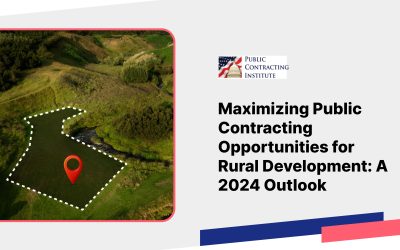**We are giving our readers the opportunity to vote on what this series should be called. If you want to chime in please use the poll below. Thank you!**
Fiction/Fallacy: “Negotiation with the Government is a zero-sum game. My contracting officer’s job is to keep the Government’s costs down, no matter what. He/she doesn’t care whether I go bankrupt in the process.”
Fact: Unfortunately, whether due to inexperience, improper training, or budget pressures, these situations have occurred. But it’s not in a contracting officer’s “job description.”
True, the FAR repeatedly admonishes the contracting officer to do what is in the best interests of the United States. But the FAR doesn’t tell the contracting officer to be a one-sided advocate whose only goal is to win, at the contractor’s expense. In fact, the very first Part of the FAR says that “[c]ontracting officers shall . . . Ensure that contractors receive impartial, fair, and equitable treatment;” (FAR 1.602-2(b)). And the FAR gives the contracting officer no wiggle room – the definitions section (2.101) states that “Shall means the imperative.”
There are good reasons behind this direction. Unlike a commercial dispute, where one party may have no reason to care what ultimately happens to the other party (after it pays any damage awards!), the Government has several important reasons to care about both the short-term and the long-term health of the contractor (and, more broadly, the contractor community).
First, if the contractor can’t afford to perform the contract (or is forced to cut corners) the agency’s mission will fail. True, the contractor will face the consequences, but so will the agency. After all, the agency didn’t award the contract in order to hurt the contractor, it awarded the contract in order to achieve an objective. If the contractor fails, the agency won’t achieve that objective.
Second, from a business standpoint the Government will benefit from greater competition, which means that it will be better off if it keeps contractors in the game. And it doesn’t want to discourage future potential contractors by mistreating one contractor. Word gets around!
Finally – and this point is frequently overlooked – the Government wears two hats. Not only is it a buyer of goods and services, it is also the sovereign. As the sovereign it has policies and responsibilities and uses the procurement system to implement those policies. That’s why, for example, the procurement system provides “socio-economic” opportunities and benefits to small businesses, 8(a)’s, and other disadvantaged companies – not to get better prices and products (which may, or may not, result), but to reflect Government policies. One of the most important Government policies is that all citizens – which includes all contractors – be treated fairly and given fair opportunities. The FAR is upfront in this respect: The very first substantive provision states that the Federal Acquisition System will “Conduct business with integrity, fairness, and openness,” because “[a]n essential consideration in every aspect of the System is maintaining the public’s trust.” (FAR 1.102(b)(3), 1.102-2(c)(1)). The shareholders of General Motors or Walmart may not feel a responsibility to spend their money fairly – after all, it’s their money. But the Government does – after all, it’s our money!
Want to learn more about FAR Facts and Fiction? Sign up for the FAR Workshop or FUN with the FAR.

